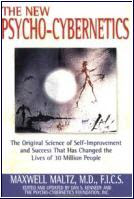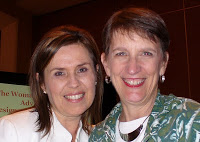My favorite author on the topic of self-esteem is Nathaniel Branden. No one holds a close second.
Through his writing, I believe he’s done more than anyone else to show just how critical a healthy sense of self is to a person’s overall well-being and happiness.
In his masterpiece, The Six Pillars of Self-Esteem, Dr. Branden brilliantly describes 6 elements that are core to developing strong self-esteem. I list them here with a brief summary of what each entails.
Which of these are strengths for you?
Which one could you develop more fully to increase your sense of worth and value?
1 – The Practice of Living Consciously
You choose to be aware of everything that impacts the actions you take. You’re open to gathering relevant facts that may or may not align with your existing perceptions, and you’re willing to change your opinion readily as you learn new information. You are not threatened by others whose ideas differ from yours. Instead, you welcome the opportunity to learn from them.
“Self-esteem expresses itself in a face, manner, and way of talking and moving that projects the pleasure one takes in being alive.”
2 – The Practice of Self-Acceptance
You are your own best friend. You forgive yourself as readily as you would those closest to you. You acknowledge your human frailties and imperfections, yet you do not allow these to define you. In spite of mistakes, you accept yourself completely. You recognize that if you deny any aspect of yourself, you will be less likely to change and grow in that area.
“Self-acceptance is my refusal to be in an adversarial relationship to myself.”
3 – The Practice of Self-Responsibility
You recognize the role you play in all aspects of your life – the quality of your relationships, the way you use your time, the values you choose to live by. You refuse to blame others for your circumstances. You look within for explanations and solutions. You do not feel guilt for what is beyond your control, focusing instead on those areas you can influence.
“No one is coming. If I don’t do something, nothing is going to get better.”
4 – The Practice of Self-Assertiveness
You honor your own wants and needs. You stand up for yourself. You consistently speak up for yourself. You hold a deep conviction that your wants are important. You’re willing to confront challenging situations and people rather than withdraw or avoid.
“Some people stand and move as if they have no right to the space they occupy.”
5 – The Practice of Living Purposefully
You identify the goals that give meaning to your life, and you use your powers to bring them into reality. You avoid wishful thinking. You translate your thoughts and desires into actions. You exercise self-discipline because you know the importance of organizing your behavior to make sure tasks get done. You recognize that an aspect of purposeful living includes making time for rest, relaxation, fun, and laughter.
“The root of our self-esteem is not our achievements but those internally generated practices that, among other things, make it possible for us to achieve.”
6 – The Practice of Personal Integrity
You live in congruence with your principles. Your words and behavior match. You regularly take time to reflect on actions you've taken and whether they’re aligned with your stated values. You evaluate beliefs and values you've been taught, and you’re willing to question if they are still appropriate for you today. You’re willing to forge your own, if necessary.
“When we behave in ways that conflict with our judgment of what is appropriate, we lose face in our own eyes.”
To gain a deeper appreciation about the importance of each pillar in building your own self-esteem, I highly recommend you read the book.
Showing posts with label self-esteem. Show all posts
Showing posts with label self-esteem. Show all posts
Monday, April 21, 2014
Tuesday, February 11, 2014
How Do You React When Others Make Mistakes?
It was the end of a great week-end.
I had coordinated a 3-day field trip for people who love bird-watching. My husband Lee and I had helped lead groups to various locations around the Outer Banks.
We had 80 attendees, and everything had gone according to plan – lots of birds, good weather and friendly people.
After the tally on the last day – where we gather together and add up all the species seen – several people came up to me to thank me for a great weekend.
I was feeling pretty good until one woman approached me after the others had dispersed.
Everything about her body language screamed that she had strong negative feelings associated with what she was about to say.
“Meg” introduced herself and reminded me that she had registered for the trip via email a few weeks earlier. She was offended that, in my confirmation email, I had asked her if she was a member because her name was not on my copy of the membership roster.
She had replied with a caustic email saying she was a member and added a few other choice words. It turns out she had just paid her dues the week before, and she was quite annoyed that I didn't have the most current membership list to see that she had paid.
In my email response to that message, I apologized to her and even thanked her for setting me straight. I explained that my membership roster was 2 weeks old so I didn't have her name on my list.
But apparently that wasn't good enough.
She felt the need to continue the complaint in person.
I was taken aback and at a loss for words as I listened to her criticism of our process.
I couldn't imagine why anyone would get so upset over such a small thing. Why couldn't she let it go?
I can’t know that answer for sure, of course. But I can speculate, based on my decades of life on the planet interacting with other human beings...
When you don’t have strong self-esteem, it’s easy to take things personally.
You feel threatened by a perceived offense and react negatively. If you’re like Meg, your preferred mode is to verbally attack the other person.
It’s unfortunate, because this type of reaction only serves to damage relationships. Instead of drawing others to you so they can affirm your worth and value, they are repelled.
I feel sad for people like Meg because she chose to overlook the positives and focus on the negative. And then to dwell on those negatives for several days.
After all, this exchange of email messages had taken place weeks earlier.
The lessons I took away?
Be gracious when another person makes a mistake. You've made mistakes, too, and hope others won’t hold them against you indefinitely.
It’s unhealthy – mentally and physically – to allow negative emotions to dominate your way of being. Let go of perceived offenses as quickly as possible.
Don’t assume it’s about YOU. It probably isn't.
Every person you encounter has challenges and struggles. You can brighten their day…or cast a dark cloud over it. Your choice.
I had coordinated a 3-day field trip for people who love bird-watching. My husband Lee and I had helped lead groups to various locations around the Outer Banks.
We had 80 attendees, and everything had gone according to plan – lots of birds, good weather and friendly people.
After the tally on the last day – where we gather together and add up all the species seen – several people came up to me to thank me for a great weekend.
I was feeling pretty good until one woman approached me after the others had dispersed.
Everything about her body language screamed that she had strong negative feelings associated with what she was about to say.
“Meg” introduced herself and reminded me that she had registered for the trip via email a few weeks earlier. She was offended that, in my confirmation email, I had asked her if she was a member because her name was not on my copy of the membership roster.
She had replied with a caustic email saying she was a member and added a few other choice words. It turns out she had just paid her dues the week before, and she was quite annoyed that I didn't have the most current membership list to see that she had paid.
In my email response to that message, I apologized to her and even thanked her for setting me straight. I explained that my membership roster was 2 weeks old so I didn't have her name on my list.
But apparently that wasn't good enough.
She felt the need to continue the complaint in person.
I was taken aback and at a loss for words as I listened to her criticism of our process.
I couldn't imagine why anyone would get so upset over such a small thing. Why couldn't she let it go?
I can’t know that answer for sure, of course. But I can speculate, based on my decades of life on the planet interacting with other human beings...
When you don’t have strong self-esteem, it’s easy to take things personally.
You feel threatened by a perceived offense and react negatively. If you’re like Meg, your preferred mode is to verbally attack the other person.
It’s unfortunate, because this type of reaction only serves to damage relationships. Instead of drawing others to you so they can affirm your worth and value, they are repelled.
I feel sad for people like Meg because she chose to overlook the positives and focus on the negative. And then to dwell on those negatives for several days.
After all, this exchange of email messages had taken place weeks earlier.
The lessons I took away?
Be gracious when another person makes a mistake. You've made mistakes, too, and hope others won’t hold them against you indefinitely.
It’s unhealthy – mentally and physically – to allow negative emotions to dominate your way of being. Let go of perceived offenses as quickly as possible.
Don’t assume it’s about YOU. It probably isn't.
Every person you encounter has challenges and struggles. You can brighten their day…or cast a dark cloud over it. Your choice.
“Often we allow ourselves to be upset by small things we should despise and forget. We lose many irreplaceable hours brooding over grievances that, in a year's time, will be forgotten by us and by everybody. No, let us devote our life to worthwhile actions and feelings, to great thoughts, real affections and enduring undertakings.”
- André Maurois, French author (1885-1967)
Thursday, May 30, 2013
Are You Immune to Criticism?
My husband Lee and I expanded our garden this spring because we relish the flavor and nutrition in the vegetables we grow ourselves. Lee has been reading about square-foot gardening, so I was intrigued when I saw the photo above. And then I noticed that this garden is in the FRONT yard. I started wondering how many neighbors – or others who drive by – might criticize this effort since it doesn't adhere to the typical “manicured” lawn that many people aspire to.
That made me think about what it takes to develop a “thick skin” so you don’t let yourself get bothered or deterred by negative things others might say about you. A case in point…
I know someone who took his martial arts business from near-bankruptcy to a multi-million dollar company in just a few years. Today he coaches hundreds of entrepreneurs on how to build a strong business. As I've studied his journey to financial success, the thing that impressed me the most was his immunity to criticism. This is a guy who has a deep, unwavering belief in himself and the value he brings to the world. So he’s never let someone else’s disapproval get him down or keep him from moving towards his goals.
It’s not easy to build and maintain this level of self-esteem. Most of us were raised to seek approval and acceptance. We want others to like us, so we often modify our behavior to please them and not ourselves. The fear of rejection can drive us to do things just to try and make someone else happy.
But if you take the desire for acceptance too far, you can sacrifice your own needs and rights. When you lack a strong sense of your own worth, you’ll look to others to validate that you’re worthy. You won’t have confidence in your opinion of yourself.
The key is to truly appreciate your unique value and develop an unshakable belief in yourself. When you hold yourself in high regard, you won’t let critical comments from others disturb you. You may listen to their words, and you may even give them serious thought, but they won’t affect the way you see yourself, because you trust your own opinion of yourself even more.
The more you work on liking and accepting yourself, the stronger you become. And the more you’ll experience the benefits described so eloquently by psychologist Nathaniel Branden:
That made me think about what it takes to develop a “thick skin” so you don’t let yourself get bothered or deterred by negative things others might say about you. A case in point…
I know someone who took his martial arts business from near-bankruptcy to a multi-million dollar company in just a few years. Today he coaches hundreds of entrepreneurs on how to build a strong business. As I've studied his journey to financial success, the thing that impressed me the most was his immunity to criticism. This is a guy who has a deep, unwavering belief in himself and the value he brings to the world. So he’s never let someone else’s disapproval get him down or keep him from moving towards his goals.
It’s not easy to build and maintain this level of self-esteem. Most of us were raised to seek approval and acceptance. We want others to like us, so we often modify our behavior to please them and not ourselves. The fear of rejection can drive us to do things just to try and make someone else happy.
But if you take the desire for acceptance too far, you can sacrifice your own needs and rights. When you lack a strong sense of your own worth, you’ll look to others to validate that you’re worthy. You won’t have confidence in your opinion of yourself.
The key is to truly appreciate your unique value and develop an unshakable belief in yourself. When you hold yourself in high regard, you won’t let critical comments from others disturb you. You may listen to their words, and you may even give them serious thought, but they won’t affect the way you see yourself, because you trust your own opinion of yourself even more.
The more you work on liking and accepting yourself, the stronger you become. And the more you’ll experience the benefits described so eloquently by psychologist Nathaniel Branden:
"As you grow in self-esteem, your face, manner, way of talking and moving will tend naturally to project the pleasure you take in being alive."
Monday, February 11, 2013
Self-Esteem and University of Miami Basketball
According to psychotherapist and author Nathaniel Branden, the world’s foremost authority on the subject, self-esteem is “the experience that we are appropriate to life and the requirements of life.” In other words, you believe that you’re capable and worthy of achieving fulfillment and happiness.
What’s the secret to developing such a belief?
I can tell you what it’s not.
It’s not having someone – whether it’s a parent, coach or boss – lavish false, undeserved praise in an attempt to instill you with a feeling of self-worth. If you’re the recipient of this kind of build-up, you can readily detect the lack of truth in their words. If anything, this approach undermines the development of healthy self-esteem.
Instead, one of the best ways to strengthen a strong sense of self is by focusing on your strengths and applying them in meaningful activities that have positive outcomes. Self-esteem is often the by-product of putting forth intense effort and achieving outstanding results.
One recent example that illustrates how this works comes from the world of college basketball.
This time of year my husband and I watch a lot of college basketball games. Since we’ve lived in Virginia for more than 30 years, we like to see the ACC teams do well. And this year, we’ve especially enjoyed the outstanding performance of the University of Miami Hurricanes (10-0 in the conference at this time).
When Miami played Duke on January 23, they didn’t just squeak by. They hammered the then-#1 ranked Blue Devils, outscoring them by 27 points (final score 90-63). Miami delivered a similar performance against North Carolina on February 9, with an 87-61 victory.
What’s been fun to watch is the amazing drive and energy the Miami players bring to every game. They’re brilliant at both ends of the court. The television cameras make it possible to observe the smiles and satisfaction on their faces as they display their skills on the court. As a result of their commitment to excellent performance every minute of every game, Miami’s self-esteem as a team has been elevated.
At least that’s how it looks to me as I’ve watched their evolution this season.
They have steadily improved with each game, and today they are a powerhouse basketball team. They've clearly made the commitment to exceptional effort, and that shows in their “win” record. The players show up for each game focused, intense and confident in their capabilities. As a result, they aren't intimidated by any opponent and consistently play outstanding basketball.
They've earned their feeling of strong self-esteem, and it carries over to everything they do on the court.
If you struggle with your own sense of worthiness – or mentor someone who does – one of the best solutions is to take actions that have a positive impact. Afterwards, be sure to give yourself (or them) credit for what’s been accomplished. It’s one thing to take appropriate, positive action. The second part is equally important – to recognize the value of what’s been done and take time to affirm the contribution.
"As you grow in self-esteem, your face, manner, way of talking and moving will tend naturally to project the pleasure you take in being alive." - Nathaniel Branden, American psychologist (1930- )
Monday, December 10, 2012
How Self-Esteem Impacts Relationships
Quite often I sat quietly as I listened in dismay to the serious challenges faced by members of the group. I hesitated to speak up because my situation seemed almost trivial in comparison.
But the counselor was very observant and astute. She recognized that my circumstances were just as impactful for ME, so one evening she asked questions that forced me to open up and reveal the pain points around my relationship. I was very uncomfortable having the spotlight shine on me, and I struggled to put into words the feelings and thoughts I was experiencing. But I knew all this was necessary to uncover the root of my problem.
Based on my responses, the facilitator gave me a homework assignment that involved answering three questions about this relationship. Writing out my answers had a profound impact on my thinking and helped me realize that, at the core of my dilemma, I faced self-esteem issues.
The three questions were:
What do I want?What I discovered was that my want list was long. I found it easy to enumerate the things I was looking for in the relationship. My need list had several items, too, but not as many as the first one. I struggled mightily with what I deserved and came up with only a few responses. I stared at the almost-blank page and pondered why I couldn't come up with more.
What do I need?
What do I deserve?
What I concluded shocked me: I didn't feel worthy of a strong, healthy relationship. As a result of this realization, I had work to do on myself. And it took quite a while before my “deserve” list increased to the size of the other two.
Over the years, I applied these same three questions with clients in my consulting and coaching work, and the insights they gained were consistently profound.
You can use them on the job or in your personal life. You can focus on your relationship with another person such as your spouse, child, friend, boss, or coworker. Or you can answer them regarding your employer, a vendor or a client organization.
If you’re willing to dig deep and provide honest answers, you’ll discover important truths about yourself.
When relationships hit rocky spots, it’s usually easy to see how the other person is contributing to the problem. Far more work is required to inspect your own role. You can cut through a lot of clutter and surface the real issues if each person first takes time to separately answer these three questions, and then the two of you come together to discuss your responses.
You’ll need courage, self-awareness and commitment, but what you learn will be worth the effort.
“You can search throughout the entire universe for someone who is more deserving of your love and affection than you are yourself, and that person is not to be found anywhere. You yourself, as much as anybody in the entire universe deserve your love and affection.” - Buddha, Indian founder of Buddhism (B.C. 563-483)
Tuesday, September 25, 2012
Self-Esteem and Our Company’s 25th Anniversary
| Meredith Bell and Denny Coates, co-founders of PSS |
What does it mean to be in business with someone else for 25 years?
A business partnership requires every bit as much work as a strong marriage. Both require an enormous amount of trust, respect and commitment, none of which are guaranteed or automatic.
When I reflect on what these years of working with Denny have been like, I feel gratitude and appreciation about all the ways our relationship has enriched my life.
But it wasn’t always like that…
You see, in the early days of our working together, I was quick to get defensive if Denny gave me constructive feedback about something I’d done or offered an alternative to an idea I’d proposed.
I had my ego tied up in the need to be right, and I felt I looked bad if I made mistakes or hadn’t come up with the better idea first. So I took his input very personally and would sometimes let it bother me for days.
Now, Denny is an expert at giving feedback and offering suggestions, so it wasn’t that he was harsh or insensitive in the way he delivered it. I just didn’t want to hear that I was imperfect! I was overly concerned that he’d think less of me if he spotted one of my shortcomings.
I have to admit, I reacted badly at times, which resulted in some tense moments and hurt feelings on my part.
Gradually I came to understand that his motivation was to simply address the situation, not to attack me. I realized that the real issue resided within me. There was nothing wrong with his delivery.
I had to recognize that low self-esteem about certain aspects of myself created that negative reaction, and strengthening the way I viewed myself and my worth were keys to solving the problem.
It took time and consistent effort to monitor my internal reactions and move past the discomfort I felt when he gave me feedback or suggestions. But over a period of months I could feel the shift in my attitude and my reactions.
If you saw us interact today, you’d wonder how this was ever an issue. The trust and respect are solid. We are equally strong in voicing our opinions and responding openly and positively to each other’s input. We quickly work through differences and accomplish amazingly creative outcomes.
And so we celebrate the 25th Anniversary of our company with great enthusiasm and a bond that’s stronger than ever. I am grateful every day that Denny and I are on this ride together.
“If you think and achieve as a team, the individual accolades will take care of themselves. Talent wins games, but teamwork and intelligence win championships.”
Michael Jordan, American professional basketball player (1963- )
Tuesday, July 5, 2011
Use a Victory Log to Build Self-Esteem
When your inner critic is busy feeding your mind negative messages, it can be hard to maintain strong self-esteem. Keeping a "Victory Log"* reminds you about your accomplishments so you give yourself credit for the positives. Learn how easy it is to set one up and use it to strengthen your belief in yourself and your abilities.
*Special thanks to Judy Robinett, who introduced the term “Victory Log” to me. Judy served as the CEO and President of a publicly-traded biotech company for eight years and now helps obtain funding for start-up companies.
*Special thanks to Judy Robinett, who introduced the term “Victory Log” to me. Judy served as the CEO and President of a publicly-traded biotech company for eight years and now helps obtain funding for start-up companies.
“There is overwhelming evidence that the higher the level of self-esteem, the more likely one will treat others with respect, kindness, and generosity. People who do not experience self-love have little or no capacity to love others.” - Nathaniel Branden, American psychologist (1930- )
“What a man thinks of himself, that it is which determines, or rather indicates his fate.” - Henry David Thoreau, American philosopher (1817-1862)
“The best things in life are yours, if you can appreciate yourself.” - Dale Carnegie, American author (1888-1955)
Sunday, March 13, 2011
You Need Self-Confidence to Think Big
Self-confidence has a huge impact on what you achieve in life. That’s because it influences the way you think about yourself and what you’re capable of. Find out specific things you can do every day to get rid of negative self-talk and set yourself up for greater confidence.
What strategies have helped you strengthen your confidence and achieve more than you first thought you could?
What strategies have helped you strengthen your confidence and achieve more than you first thought you could?
“If we all did the things we are capable of, we would astound ourselves.” - Thomas Edison, American inventor
“Use what talents you possess; the woods would be very silent if no birds sang there except those that sang best.” - Henry Van Dyke, American educator
“Self-confidence is the first requisite to great undertakings.” - Samuel Johnson, British essayist
“There isn’t a person anywhere who isn’t capable of doing more than he thinks he can.” - Henry Ford, American business leader
Friday, January 28, 2011
Give Yourself Credit for the Small Victories
I’m not a technical person by nature. Fortunately, I’m married to someone who is. In fact, my husband Lee can do anything that involves assembling, taking apart, and repairing items. To me, he is an absolute genius in this area.
But I’ll never forget the first laser printer I got for my home office in 1990 because I assembled it and hooked it up to my computer myself. Granted, this was not particularly difficult. But the instructions weren’t quite as intuitive as the ones packed with computer devices today, so it was a real accomplishment for me to do this on my own.
The rest of the day I remember feeling really good about myself. I had stretched outside my comfort zone and worked something out on my own, without asking Lee for assistance. And my printer worked!
The important point is that I recognized and gave myself credit for this small achievement.
Too often, our self-talk is critical and judgmental, which leads to feelings of inferiority and a low sense of self-worth. We focus on what we haven’t done or on how what we have done falls short of our (often unrealistic) expectations.
The way to build your confidence is to be on the look-out for things you’ve done well in the course of your day, no matter how small, and recognize the accomplishments. You can’t rely on someone else to notice everything you do. And besides, you’re apt to discount their input if you don’t first recognize yourself the value of what you’ve completed.
So at least twice a day, take time to reflect on what you’ve done so far in that day that you are proud of. Maybe you’ve taken time to offer a kind word to a stranger, or you’ve made an important business call you’ve been putting off, or you exercised patience in a trying situation, or you took time to read to your child. All of these actions count. They have a positive impact on your self-image and strongly influence what you’ll do tomorrow and the next day.
But I’ll never forget the first laser printer I got for my home office in 1990 because I assembled it and hooked it up to my computer myself. Granted, this was not particularly difficult. But the instructions weren’t quite as intuitive as the ones packed with computer devices today, so it was a real accomplishment for me to do this on my own.
The rest of the day I remember feeling really good about myself. I had stretched outside my comfort zone and worked something out on my own, without asking Lee for assistance. And my printer worked!
The important point is that I recognized and gave myself credit for this small achievement.
Too often, our self-talk is critical and judgmental, which leads to feelings of inferiority and a low sense of self-worth. We focus on what we haven’t done or on how what we have done falls short of our (often unrealistic) expectations.
The way to build your confidence is to be on the look-out for things you’ve done well in the course of your day, no matter how small, and recognize the accomplishments. You can’t rely on someone else to notice everything you do. And besides, you’re apt to discount their input if you don’t first recognize yourself the value of what you’ve completed.
So at least twice a day, take time to reflect on what you’ve done so far in that day that you are proud of. Maybe you’ve taken time to offer a kind word to a stranger, or you’ve made an important business call you’ve been putting off, or you exercised patience in a trying situation, or you took time to read to your child. All of these actions count. They have a positive impact on your self-image and strongly influence what you’ll do tomorrow and the next day.
Thursday, September 16, 2010
Self-Esteem - Believe in Your Own Worth.
It’s natural to want others to like you and accept you. When you’re happy to be the person you are, you won’t be as concerned about what other people think. Learn why immunity to the criticism of others is a key ingredient to developing a healthy self-esteem.
What do you do on a regular basis to keep your self-esteem strong and healthy?
What do you do on a regular basis to keep your self-esteem strong and healthy?
"Too many people overvalue what they are not and undervalue what they are." - Malcolm S. Forbes, American publisher
“Keep away from people who try to belittle your ambitions. Small people always do that, but the really great make you feel that you, too, can become great.” - Mark Twain, American novelist
"Love yourself first and everything else falls into line. You really have to love yourself to get anything done in this world." - Lucille Ball, American comedian
"Our self-image and our habits tend to go together. Change one and you will automatically change the other." - Maxwell Maltz, American author
Tuesday, August 17, 2010
Limiting Beliefs Cause Us to Think “Small”
Have you ever said, “I could never do that” when someone suggested you try something totally different?
I have. Many times in my life.
More times than I’d like to admit, actually.
I’ve come to the conclusion that most of us play “small.” We get stuck in familiar routines and habits, and we don’t consider how much more is possible for us. Even if the change could lead to greater success.
What’s holding us back?
Recordings from our childhood play endlessly in the background of our minds, driving our behavior today. Until we bring these old tapes to consciousness and examine their flaws and inaccuracies, we will continue to be guided by them in the choices we make every day.
Also, maybe you notice that someone else is much better than you are in a given skill, and you criticize yourself for not measuring up to them. It’s easy to find someone who’s smarter, more attractive, or has more money than you do.
All of this internal dialogue about your perceived shortcomings or failings leads to lack of confidence and paralysis. Pretty soon you convince yourself that you shouldn’t try anything outside your comfort zone because you might not get the results you hoped for…and then you’d feel even worse about yourself.
The result is, you don’t give yourself enough credit for the amazing qualities you do possess. How do I know this about you? Because most of us have an ongoing litany of negative self-talk permeating our minds throughout the day.
#1 – Keep a daily journal and record thoughts about how you can use your strengths to make a difference.
#2 - Write affirmations and say them aloud every day. You might want to record them, then listen to them each morning and evening.
#3 – Spend at least 10 minutes each morning sitting quietly with your eyes closed, visualizing the day exactly as you’d like to see it unfold and imagining yourself successfully completing tasks that will help you accomplish your goals.
I have. Many times in my life.
More times than I’d like to admit, actually.
I’ve come to the conclusion that most of us play “small.” We get stuck in familiar routines and habits, and we don’t consider how much more is possible for us. Even if the change could lead to greater success.
What’s holding us back?
Recordings from our childhood play endlessly in the background of our minds, driving our behavior today. Until we bring these old tapes to consciousness and examine their flaws and inaccuracies, we will continue to be guided by them in the choices we make every day.
Also, maybe you notice that someone else is much better than you are in a given skill, and you criticize yourself for not measuring up to them. It’s easy to find someone who’s smarter, more attractive, or has more money than you do.
All of this internal dialogue about your perceived shortcomings or failings leads to lack of confidence and paralysis. Pretty soon you convince yourself that you shouldn’t try anything outside your comfort zone because you might not get the results you hoped for…and then you’d feel even worse about yourself.
The result is, you don’t give yourself enough credit for the amazing qualities you do possess. How do I know this about you? Because most of us have an ongoing litany of negative self-talk permeating our minds throughout the day.
"Too many people overvalue what they are not and undervalue what they are." - Malcolm S. Forbes, American publisherIf you’re ready to start thinking “BIG” about yourself and what’s possible in your life, these three actions will feed your subconscious mind with positive, realistic thoughts that can help you get there:
#1 – Keep a daily journal and record thoughts about how you can use your strengths to make a difference.
#2 - Write affirmations and say them aloud every day. You might want to record them, then listen to them each morning and evening.
#3 – Spend at least 10 minutes each morning sitting quietly with your eyes closed, visualizing the day exactly as you’d like to see it unfold and imagining yourself successfully completing tasks that will help you accomplish your goals.
"Believe in yourself! Have faith in your abilities! Without a humble but reasonable confidence in your own powers you cannot be successful or happy." - Norman Vincent Peale, American authorPlease share the strategies you use to keep yourself thinking "big" on a regular basis.
Friday, January 1, 2010
Make 2010 Your Best Year by Expanding Your Self-Image
One of the most important actions I took in 2009 was re-discovering the work of Maxwell Maltz. His original book, Psycho-Cybernetics (1960), became the foundation of much that's been written since about self-image and self-improvement.
 An updated version, The New Psycho-Cybernetics, was published in 2001, with new examples, material and editing by one of my marketing mentors, Dan Kennedy. I've underlined and marked up both copies more than any other books I own. There's remarkable life-changing wisdom on every page if you're eager to become all you're capable of.
An updated version, The New Psycho-Cybernetics, was published in 2001, with new examples, material and editing by one of my marketing mentors, Dan Kennedy. I've underlined and marked up both copies more than any other books I own. There's remarkable life-changing wisdom on every page if you're eager to become all you're capable of.
As we all begin a new year, I'd like to share a few of my favorite quotes from the updated book that may inspire you to action and make 2010 the best year of your life. Remember, you can only achieve that which you truly believe you are worthy of achieving. So expanding your belief in what's possible is critical to your success in every area of your life.
About past mistakes...
"Continually criticizing yourself for past mistakes and errors...tends to perpetuate the very behavior you would change...The minute that we change our minds and stop giving power to the past, the past with its mistakes loses its power over us...When you thoroughly accept that you are not your mistakes, you are freed to acknowledge them, learn from them, set them aside, and move on from them without being mired in them."
About changing your self-image...
"Creating a better self-image does not create new abilities, talents, powers; it releases and utilizes them...Accept yourself as you are and start from there. Learn to emotionally tolerate imperfection in yourself. It is necessary to intellectually recognize our shortcomings, but disastrous to hate ourselves because of them."
About self-reliance...
"Assume responsibility for your own life and emotional needs...Give yourself your own gold stars...You must be able to admire your own good work and recognize your own acheivements...The refusal to blame ourselves or others or to accept a problem as beyond our influence gives us resiliency in the face of adversity."
About Psycho-Cybernetics...
"The essence of Psycho-Cybernetics is the accurate, calm, and ultimately automatic separation of fact from fiction, fact from opinion, actual circumstance from magnified obstacle, so that our actions and reactions are solidly based on truth, not our own or others' opinions."
If you've read either or both of these books, how has the information impacted your thinking and your life?
 An updated version, The New Psycho-Cybernetics, was published in 2001, with new examples, material and editing by one of my marketing mentors, Dan Kennedy. I've underlined and marked up both copies more than any other books I own. There's remarkable life-changing wisdom on every page if you're eager to become all you're capable of.
An updated version, The New Psycho-Cybernetics, was published in 2001, with new examples, material and editing by one of my marketing mentors, Dan Kennedy. I've underlined and marked up both copies more than any other books I own. There's remarkable life-changing wisdom on every page if you're eager to become all you're capable of.As we all begin a new year, I'd like to share a few of my favorite quotes from the updated book that may inspire you to action and make 2010 the best year of your life. Remember, you can only achieve that which you truly believe you are worthy of achieving. So expanding your belief in what's possible is critical to your success in every area of your life.
About past mistakes...
"Continually criticizing yourself for past mistakes and errors...tends to perpetuate the very behavior you would change...The minute that we change our minds and stop giving power to the past, the past with its mistakes loses its power over us...When you thoroughly accept that you are not your mistakes, you are freed to acknowledge them, learn from them, set them aside, and move on from them without being mired in them."
About changing your self-image...
"Creating a better self-image does not create new abilities, talents, powers; it releases and utilizes them...Accept yourself as you are and start from there. Learn to emotionally tolerate imperfection in yourself. It is necessary to intellectually recognize our shortcomings, but disastrous to hate ourselves because of them."
About self-reliance...
"Assume responsibility for your own life and emotional needs...Give yourself your own gold stars...You must be able to admire your own good work and recognize your own acheivements...The refusal to blame ourselves or others or to accept a problem as beyond our influence gives us resiliency in the face of adversity."
About Psycho-Cybernetics...
"The essence of Psycho-Cybernetics is the accurate, calm, and ultimately automatic separation of fact from fiction, fact from opinion, actual circumstance from magnified obstacle, so that our actions and reactions are solidly based on truth, not our own or others' opinions."
If you've read either or both of these books, how has the information impacted your thinking and your life?
Labels:
Maxwell Maltz,
Psycho-Cybernetics,
self-esteem,
Self-Image
Wednesday, December 23, 2009
Stop Comparing Yourself to Others!
 I was listening to an interview of one of my good friends, Debbie Phillips, as she focused on the seven mistakes that keep someone from being "A Woman on Fire." The one that jumped out at me applies to males and females alike: the tendency to compare ourselves to others.
I was listening to an interview of one of my good friends, Debbie Phillips, as she focused on the seven mistakes that keep someone from being "A Woman on Fire." The one that jumped out at me applies to males and females alike: the tendency to compare ourselves to others.In essence, this is the same phenomenon described by Maxwell Maltz in his classic book, Psycho-Cybernetics, as a "feeling of inferiority." Both are based on judging and measuring ourselves, not against our own standards, but against what we see in other individuals.
Hearing this same message in slightly different forms caused me to think about how deeply ingrained this "comparison" habit is within most of us...and how destructive it can be to our sense of self-worth.
Think about it. Anywhere you look, you can find someone who...performs a specific skill better...is more attractive physically...wears nicer clothes...has a bigger house...speaks more eloquently...has better-behaved children...the list is endless! If you're constantly comparing yourself, you'll come up short every time.
Interestingly, Debbie and Dr. Maltz offer the same solutions:
1. Establish your own standards for those things that matter to you, and measure your actions and progress against them. Commit today to compare yourself only to your own norms, not to anyone else's.
2. Develop a new attitude when you observe a strength in someone else. Instead of criticizing yourself for falling short, use their positive qualities as inspiration. You can admire others for their strengths and learn from them.
3. When you find yourself making a comparison, break this destructive habit by interrupting your thought pattern. Debbie uses a refrain from a Britney Spears song, "Oops, I did it again!" Find a phrase that works for you and insert it in your mind each time you start feeling inferior to someone else. At the same time, identify any qualities or actions you want to emulate.
When you follow these steps, you'll develop a more accepting, loving attitude towards yourself. Any feelings of inferiority you might have had will be replaced by a genuine appreciation for the exceptional person you are.
Thursday, October 22, 2009
Free Yourself from Outdated Expectations
"I've got to make the bed every morning before I can leave for work," my friend complained as we were having lunch one day. She had been describing the stress she was under, all the things she had to do each day, and why she had no time to relax. Making the bed was on her list of daily "must-do" tasks.
She looked startled when I asked her, "Why? Why do you feel that you have to make the bed every day?" After pondering the question a moment, she realized that it was one of the rules she'd absorbed from her mother and had never questioned in her almost-60 years of life.
Labels:
expectations of others,
guilt,
self-acceptance,
self-esteem,
Self-Image
Subscribe to: Posts (Atom)













